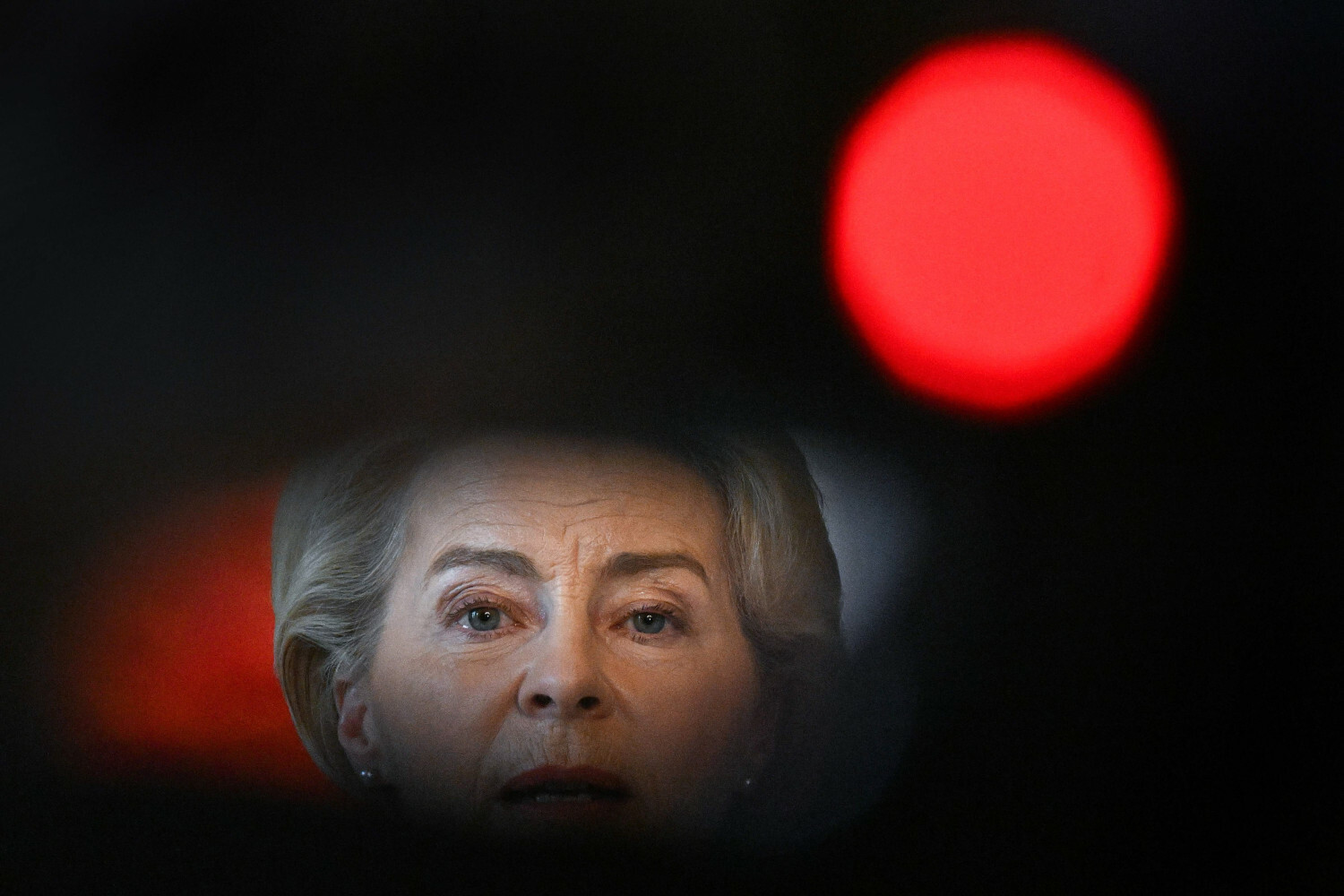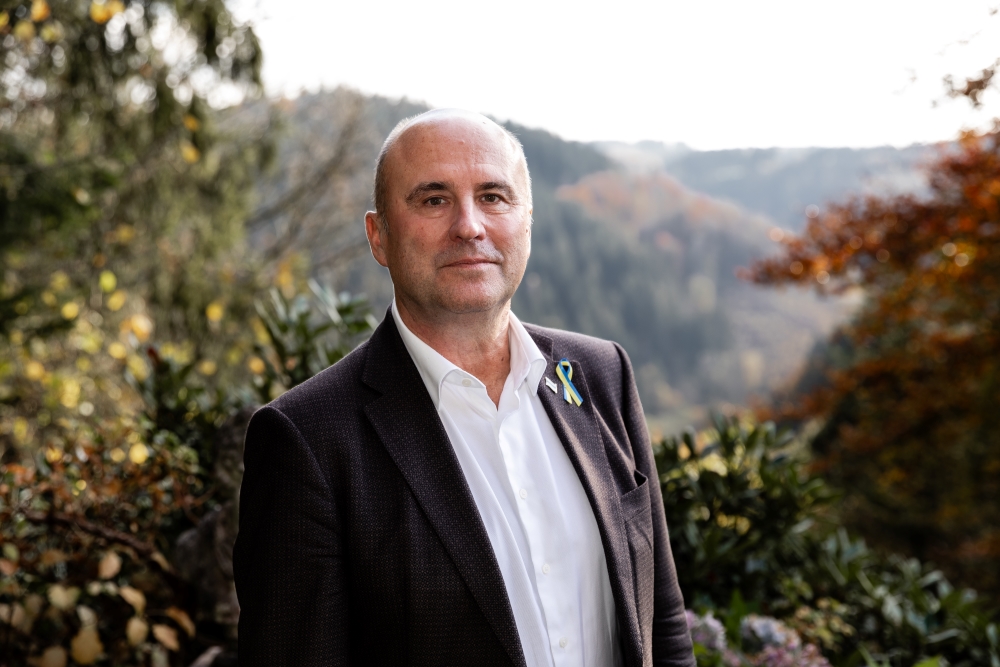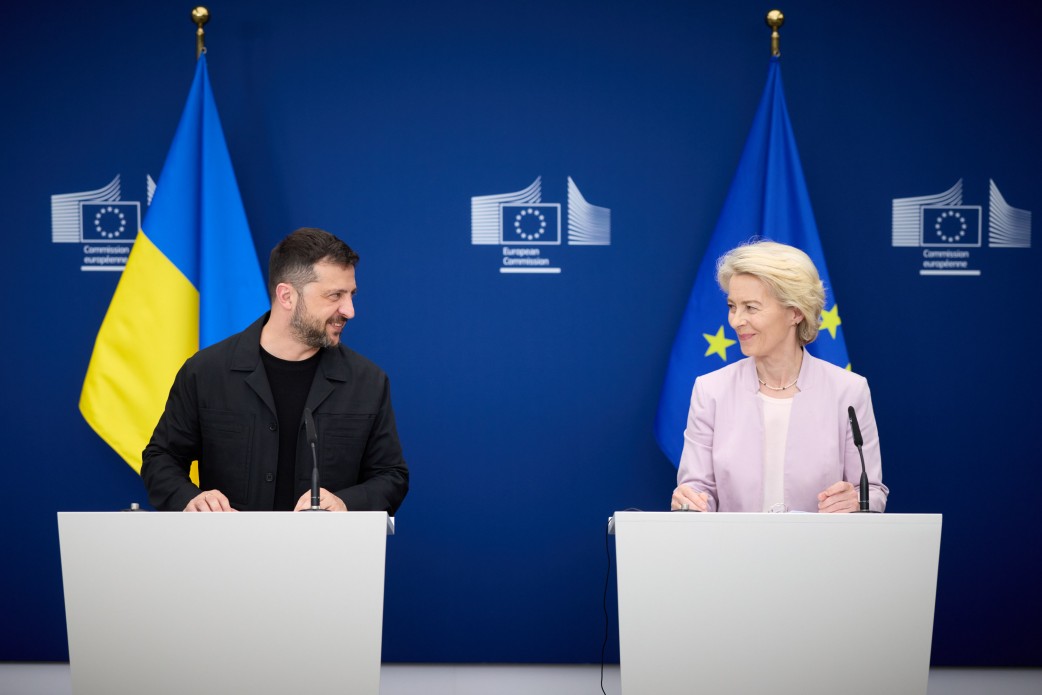Support Sestry
Even a small contribution to real journalism helps strengthen democracy. Join us, and together we will tell the world the inspiring stories of people fighting for freedom!
Mariia Gorska: On July 1st Ukraine began the negotiations on joining the EU. It is a unique case - a country resisting an aggressor is simultaneously going into the EU. As an expert on the European Commission in the 2000s and an employee of the Polish Committee for European Integration in the 1990s, how do you see this moment in Ukraine and Poland’s history?
Małgorzata Bonikowska: This is certainly a precedent. The EU has never faced such a situation before. None of the candidate countries have been in a state of open war. The Republic of Cyprus was the only country that joined while having problems at the borders.
But it was the war that led the EU, as a union of twenty-seven, to make decisions important to its history. Not only did it unequivocally condemn Russia and support the country that suffered from the attack and brutal invasion, but it also adopted more than a dozen packages of sanctions against Russia and introduced joint mechanisms of financial and military assistance to Ukraine.
This is also a precedent in the European Union - joint arms purchases from a common budget, the so-called «European Peace Facility». The EU has never engaged in this before.
This war has put the structures of the European Union into a state of shock. In response, certain measures have been taken that resulted in an expansion and a quick start of the negotiations with Ukraine and Moldova
Processes that could not be moved for years, if not decades, are now happening.
What are the main tasks for Ukraine during the negotiations?
While the war in Ukraine is an absolutely extraordinary situation, the process of negotiations about joining the EU is a standard procedure.
Poland, like other countries that joined the EU, went through this process. It involves a country that wants to join the European Union negotiating to adopt the entire legislative base and the main principles of the EU's functioning. Therefore, these are negotiations in which the position of the negotiating country is weak because, as a rule, this country still has to accept everything in the end.
The only question is how quickly and to what extent. The negotiations are based on clearly defined principles. There are 35 negotiation chapters concerning specific areas of state functioning, such as agriculture, environmental protection, education, the economy and healthcare. The negotiations concern how quickly and to what extent the country wishing to join the EU will adapt to the EU legislation and internal rules.
Transition periods are possible, meaning a slower adaptation. In exceptional cases, exemptions, known as derogations from EU rules, are possible. For example, Malta has additional guarantees against the purchase of property by citizens of other countries.

Where do the biggest problems lie in Ukraine’s case?
First and foremost, it is corruption - a massive problem. It concerns the whole functioning of the state in habits formed back in the Soviet time.
The organisation of the state largely relies on agreements and oligarchy, and society has become accustomed to this. Corruption, of course, exists everywhere to some small extent, including in the EU, but such cases are stigmatised. There is an apparatus to hold people accountable in such situations.
However, these are absolute exceptions and are unequivocally condemned. Upon joining the EU, Ukraine will need to adjust the functioning of its state, relying on strong institutions and transparent procedures.
How long can Ukraine's integration take, and is it realistic to implement changes during the war while simultaneously defending the country?
The EU understands that the war is an additional challenge that places a tremendous burden on the Ukrainian state.
At the same time, Ukraine receives significant military and financial assistance. Therefore, it is important that there is no doubt about where this aid is going and that it is not subject to corruption mechanisms. When we talk about the plan for Ukraine's reconstruction after the war, we think not only about where to get the funds, in what scale, and how to modernise the country, but also how to ensure these funds do not leak «to the side» into private hands.
This is important, and I believe that one of the methods is close cooperation with foreign advisors from EU countries, including Poland.
Before the start of negotiations, the President of Ukraine approved a delegation to take part in negotiating the joining with the EU that was comprised of government officials, diplomats and experts. How important is the composition of this group and what skills should these people have?
Negotiation group is a formal structure, created by the government of the country joining the EU.
Each negotiation area is headed by a deputy minister who coordinates the work of an entire team. This team comprises individuals with substantial knowledge of the areas of discussion. Usually, these are people appointed by the relevant ministries - ministry employees or external experts. Exactly these individuals, using their professional knowledge, must assess the implications of implementing EU norms in Ukraine and their impact on specific sectors. Their role is to analyze whether there is a need for delays or even deviations from EU rules, and if so, to what extent, as well as how to prepare the legal framework in your country for making the necessary changes.
Ukraine is subject to a screening process which involves analysing the entire legal situation for discrepancies, gaps in legislation, lack of regulations and the need for new ones. The negotiating team will provide recommendations on creating regulatory documents that will need to be submitted to the Ukrainian parliament. As a result of the negotiations, Ukraine's legal situation should closely align with the EU's legal framework, so that there are no discrepancies at the time of accession.
This concerns the «Acquis communautaire» legislation, meaning all the legal norms, directives and standards that member states must adhere to. At the same time, however, each country has the right to negotiate a longer implementation period for these rules in particularly challenging areas. In Poland's case, for example, this was environmental legislation, as it set requirements too high for our country's development stage at that time. We joined the EU in 2004, and the transition period lasted until 2017 because we understood that we could not implement all EU standards in this area faster.
The Ukrainian side together with the EU needs to identify such issues that pose clear difficulties and agree on an extended period for implementing EU norms in these areas.
According to expert estimates, negotiations with the EU typically take an average of 5-7 years. However, the war in Ukraine is accelerating Ukraine's path to the West. How long can the negotiation and accession process take in our case?
War and accession are two different things. The war makes the negotiations difficult for Ukraine, though it will not accelerate them but rather slow them down
This is because the EU is already a quite complex organisation, comprising 27 countries with significant differences among them, as well as in their political systems. The accession of each new country poses additional challenges. Therefore, the EU tries to prepare both itself and the acceding country for this moment, minimising the differences. The greater the differences, the greater the internal problems for the EU as a whole.
We cannot allow a situation where enlargement undermines the entire structure from within.
There are many concerns on the EU’s side regarding the next enlargement. We do not want to weaken but only strengthen our community. That is why negotiations with Ukraine will be long and complex. In Poland's case, they lasted five years, and in Spain's case - nearly eight, while Greece had shorter negotiations (four years and five months, - Edit.).
Ukraine is a large and populous country. A large country means large problems. Look at the situation in agriculture and the conflict between Poland and Ukraine over grain. There will be more such situations in many other areas. Even without the war, there are many challenges between Ukraine and the EU, so negotiations will not be easy, and the moment of Ukraine's accession to the EU will be challenging for both sides.

What is the good news for Ukraine?
The good news is that there is a clear will to negotiate and that Ukraine is not only a candidate country but has already embarked on the path, with all twenty-seven EU member states convinced that Ukraine is a European country that must one day be a member of the European Union.
This is very good news for Ukraine. A few years ago, this prospect did not exist. Today, it is a reality materialising before our eyes.
What demands will Poland have in the negotiations with Ukraine? What will prevail - partnership or competition?
Ukraine is negotiating not with individual countries but with the European Commission.
The process is managed by the European Commission and the Directorate-General for Enlargement, which negotiates on behalf of all member states. The main idea is that the EU wants to expand and eventually accept Ukraine.
However, EU countries have different approaches to specific issues related to Ukraine's accession, depending on their own situations. There are countries where agriculture is a crucial aspect of the economy and is strong, such as Poland, France, and Italy, and there are those where agriculture is marginal, like Luxembourg.
Therefore, challenges like the ones posed by Ukrainian agriculture to the EU are crucial for some countries and less important for others. The same applies to other sectors.
Each member state analyses this through its own lens and provides the European Commission with specific comments and proposals regarding their preferences or concerns. It involves preserving the interests and positions of certain sectors and groups - entrepreneurs, farmers, the financial industry, the automotive industry - both in the EU and in Ukraine. Therefore, it is a process of reconciling very narrow details and specific technical issues.
In some respects, the negotiation process may seem like a step back for Ukraine. Due to the war, Ukraine suddenly became part of the European market at an accelerated pace, as the EU decided to help the Ukrainian economy by removing trade barriers. However, this was a temporary measure, driven by the Russian invasion and the desire to ensure Ukraine's survival.
Meanwhile, the war drags on, and we are facing a precedent where a country that is not in the EU has de-facto gained the same prerogatives that member-states have
This also applies to work permits and the free movement of people. During its negotiations with the EU, Poland particularly struggled with this issue, and we were unable to obtain the ability to freely operate in the European labour market from the first day of membership.
The only two countries that allowed us this opportunity at the time were the United Kingdom (which was then in the EU) and Ireland. All other EU countries imposed a seven-year transition period, meaning Poles could not work in EU countries without additional permits and procedures related to their employment.
Ukrainians, due to the war, have been granted the ability to move and work freely. In Poland, they receive a PESEL number, which means they can legally work, pay taxes, and, importantly, do not need to obtain any additional permits.
This would not have happened if it were not for the war.

How can Poland help Ukraine during the negotiations?
I believe Poland can do two things for Ukraine. First, we have gone through a similar process, so we have fresh practical experience to share. We negotiated our EU accession from 1998 to 2003. The people involved in this process are still active today. They can be asked for consultations, for example, as advisors to the Ukrainian government, to make the process as professional and efficient as possible.
Second, Poland, clearly interested in Ukraine's EU membership, can act as a bridge for Ukraine. Not all EU countries have such a clear vision of the future EU with Ukraine inside. There is a will, but some countries have significant reservations about how Ukraine functions and what it truly offers.
For example, Germany has many doubts. So today, Poland can play the role of a bridge, also connecting the cultural and historical closeness of our peoples. We can fulfil a similar role to the one Germany played for Poland in the late 1990s.
They wanted expansion and helped Western Europe not only recognise its inevitability but also see the benefits. Today, Poland can do the same for Ukraine.
What are the main lessons or advice you would give to Ukraine based on the Polish experience?
First and foremost, Ukraine needs to understand that everyone sympathises with it regarding the war. War is a terrible thing. But negotiations are different. Despite Ukraine's resistance to Russia, it will not receive special preferential treatment in the negotiations. It must become an EU member and accept the rules of this organisation.
Ukrainians have become very demanding. They feel they deserve everything because they are at war. This mindset is highly undesirable in negotiations. Ukraine must understand that it is joining a pool of countries that have agreed on a certain way of functioning, and excessive pressure and a lack of compromise will only lead to one thing - prolonging the negotiations.
The quick path to Ukraine's victory is joining NATO. However, the latest summit showed that NATO countries are not ready to offer Ukraine membership now. What should our actions be, and what are the prospects?
Firstly, continue fighting. Ukraine must withstand. No one knows how long - one year, two years - how long it will take. As long as the war in Ukraine continues, NATO will not accept Ukraine because the Alliance itself would be in a state of war.
After the end of the war, Ukraine’s situation will change - the Ukrainian army will be very experienced in combat and will be able to train the armies of the member-states itself. Accession to NATO will definitely be a step that will strengthen the Alliance.
We do not know how events will unfold in the United States and who will win the elections. However, an important part of thinking about Ukraine's future will be considerations about ending the war.
While Ukraine fights, Europe must remilitarise at an accelerated pace to provide Ukraine with enhanced assistance. Everyone here is racing against time, but not only us - Russia too. Look at the impact of sanctions - they have already led to Gazprom having negative financial results, meaning Russia's monetary resources for waging war are slowly running out. The faster their economy declines, the fewer funds Putin will have to finance the war, and the sooner it will end.
At some point, Russia will realise that it is not going to win this war and will come to the negotiating table. Otherwise, the negotiations will boil down to demands for Russia to retain the occupied territories and for Ukraine to be recognised as a buffer zone between Russia and NATO.
This situation is unacceptable for Ukraine and for the West.

Countries from the so-called axis of evil, along with some countries from the Global South, are helping Russia survive despite sanctions. How do we deal with this?
This is a matter of Western diplomacy, but the news is not so bad here. Look, in our camp, we have Australia, Japan, New Zealand, and South Korea.
Regarding other countries, we must negotiate and cooperate. Indeed, Russia is not alone and has its friends, allies, and countries it communicates with. But these are not always countries hostile to the West. These are often neutral countries or even partners of the West, like, for example, India.
Recently, we saw photographs of Prime Minister Narendra Modi visiting Putin. From India's perspective, this meeting was desirable, but the West perceived it negatively. Europe and the USA must be very active in the countries of the Global South. Not only transmitting our narrative and our vision of the war but also putting concrete proposals on the table that are more attractive to these countries than what comes from Russia.
Russia does not have much to offer, only cheap energy resources and weapons. We can provide a better offer.
In 5-10 years, what Europe will we live in?
It depends on us and our decisions, as well as whether we will yield to the pressure we are put under. Europeans are not used to living under constant threat.
After World War II, Europe, not having war on its territory, became accustomed to the idea that economic issues are the most important and that there are no other threats.
Now, Europeans live in constant stress - economic inequality disappoints people, and the international situation causes fear. Suddenly, it turned out that Russia, which seemed like a normal country, is not. All this is a kind of foundation for anxiety, disappointment, protests, and anarchic behaviour, and all this means that we can be internally destabilised.
Europe has found itself in between two polarities. One - is inner anxiety and disappointment because of the inner and outer instability. Second - the desire to assemble and work together
Which path will prevail and what does it depend on, while Europe is still at a crossroads?
I think people will not want to go back to the past and live worse. Our world is shaped by values, but also by the way of life and certain habits we have - for example, moving freely, living a safe, prosperous life, being together and cooperating in situations of increased threat.
We are going through tough times, and they require the implementation of cooperation mechanisms within the EU and across the entire European continent.
A lot depends on the leaders here. I see hope in the fact that in democracies, there are not just one, three, or five heads, but many, many people who have good ideas. This is much more powerful than the principle of action in authoritarian systems, where everything is decided by the leader and his will.
We can count on many wise heads and many wise concepts. We are already doing this, all because the war in Ukraine has accelerated certain processes. We see significant internal changes in the European Union. NATO expansion is ongoing, the EU enlargement process has begun, the coordination of the EU's military industry has been strengthened, and a Commissioner for Defense has been appointed.
Ukraine is our catalyst for positive change. Europeans have always emerged from crises stronger.

Chief Editor of the online magazine Sestry. Media expert, TV host, cultural manager. Ukrainian journalist, program director of the TV channel Espresso, organiser of international cultural events significant for Polish-Ukrainian dialogue, including the Vincenz projects in Ukraine. She was the chief editor of prime-time celebrity lifestyle shows aired on STB, 1+1, TET, and Novyi Kanal TV channels. Since 2013, she has been a journalist at the Espresso TV channel, hosting the programs «Week with Maria Gurska» and «Saturday Political Club» with Vitaliy Portnikov. Since February 24, 2022, she has been a host of the wartime TV marathon on Espresso. She is temporarily residing in Warsaw, where she has actively joined initiatives to support Ukrainian temporary migrants in the EU - launching the publication Sestry with a team of Polish and Ukrainian journalists.
%20(1).avif)









